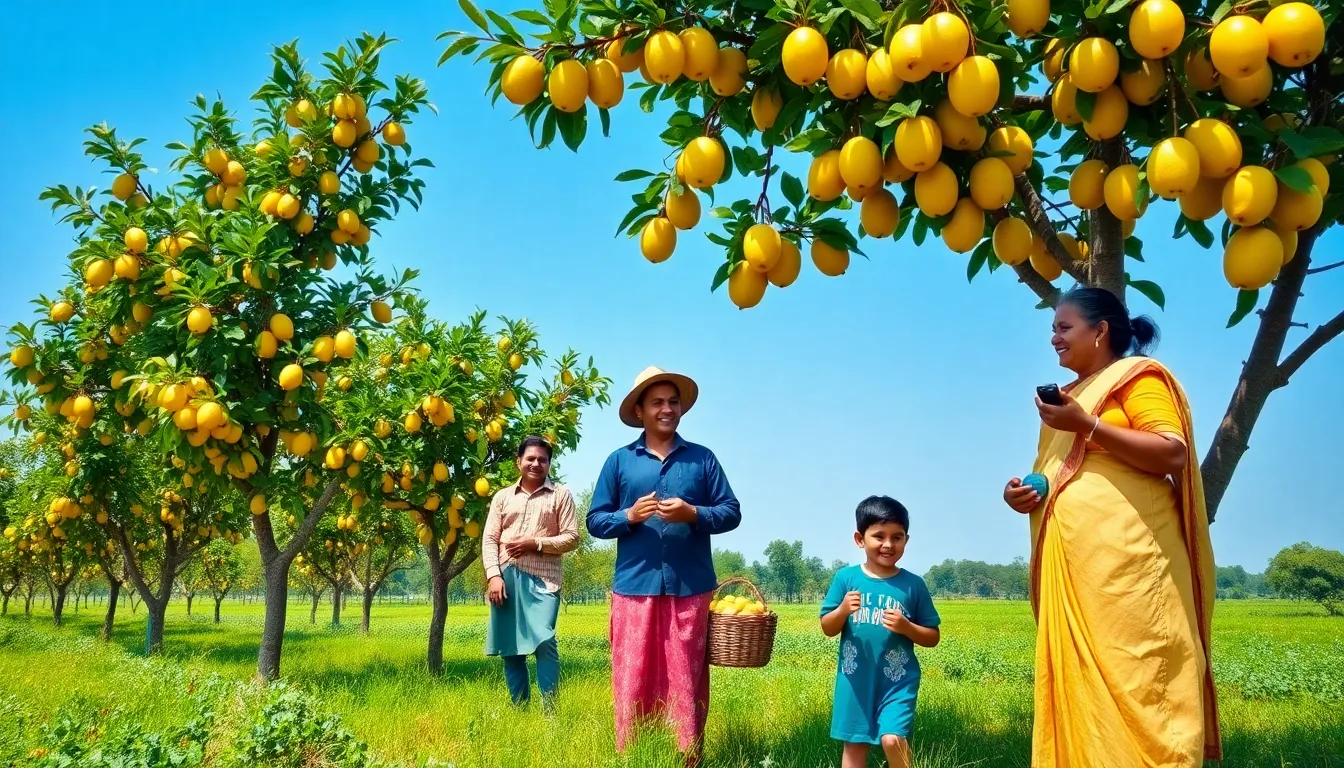Kaji Nemu is a unique lemon variety from Assam, India. Known for its fragrant aroma and juicy taste, it has become increasingly popular. This lemon is special because it is larger than typical lemons and has a thin rind. The tree can produce fruit all year, making it a valuable crop for farmers. Kaji Nemu received a Geographical Indication (GI) tag on May 10, 2019. This tag protects its identity and helps farmers get better prices. On February 5, 2024, it was declared the state fruit of Assam, further boosting its importance.
Farmers can cultivate Kaji Nemu in loamy soils with good drainage. It thrives in dry, subtropical climates. When planting, it is essential to avoid water retention. Kaji Nemu trees are propagated mainly through cuttings. Farmers can also use seeds, but this method is less common.
To ensure higher yields, farmers should apply proper fertilizers and manage water effectively. Regular pest control is crucial to protect the crop. Popular pests include aphids and citrus psylla, which can damage the fruit.
The Kaji Nemu tree can grow between 2 and 3.5 meters tall. It typically produces 300 to 500 fruits per year. Each fruit weighs about 60 to 100 grams. The lemons do not drop easily, which allows them to be harvested at the right time.
Kaji Nemu has many uses in Assamese cuisine. It is often served with rice and curries, adding a tangy flavor to dishes. The lemon is also used in beverages, pickles, and medicinal remedies. Its essential oils are extracted for various purposes, showcasing its versatility.
Farmers can expect a yield of 20 to 30 tonnes per hectare per year. The market price for Kaji Nemu can vary from 15 to 60 INR per kg, depending on supply and demand. The income potential makes it a worthwhile crop for farmers.
As awareness of health benefits grows, the demand for Kaji Nemu is increasing. This lemon is known for its high vitamin C content and antioxidant properties. Promoting Kaji Nemu will not only benefit farmers but also highlight Assam’s rich agricultural heritage.
To successfully grow Kaji Nemu, farmers should follow best practices in cultivation. This includes maintaining proper soil health and using integrated pest management (IPM) techniques. Crop rotation and intercropping with legumes can also enhance soil fertility and provide additional income.
In conclusion, Kaji Nemu is more than just a fruit; it is a vital part of Assam’s culture and economy. Its unique characteristics and health benefits make it a valuable crop. With proper care and management, Kaji Nemu can support farmers and boost the local economy for years to come.

